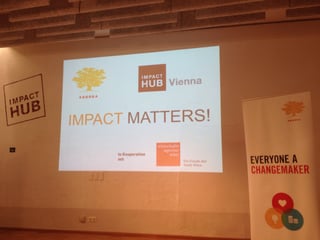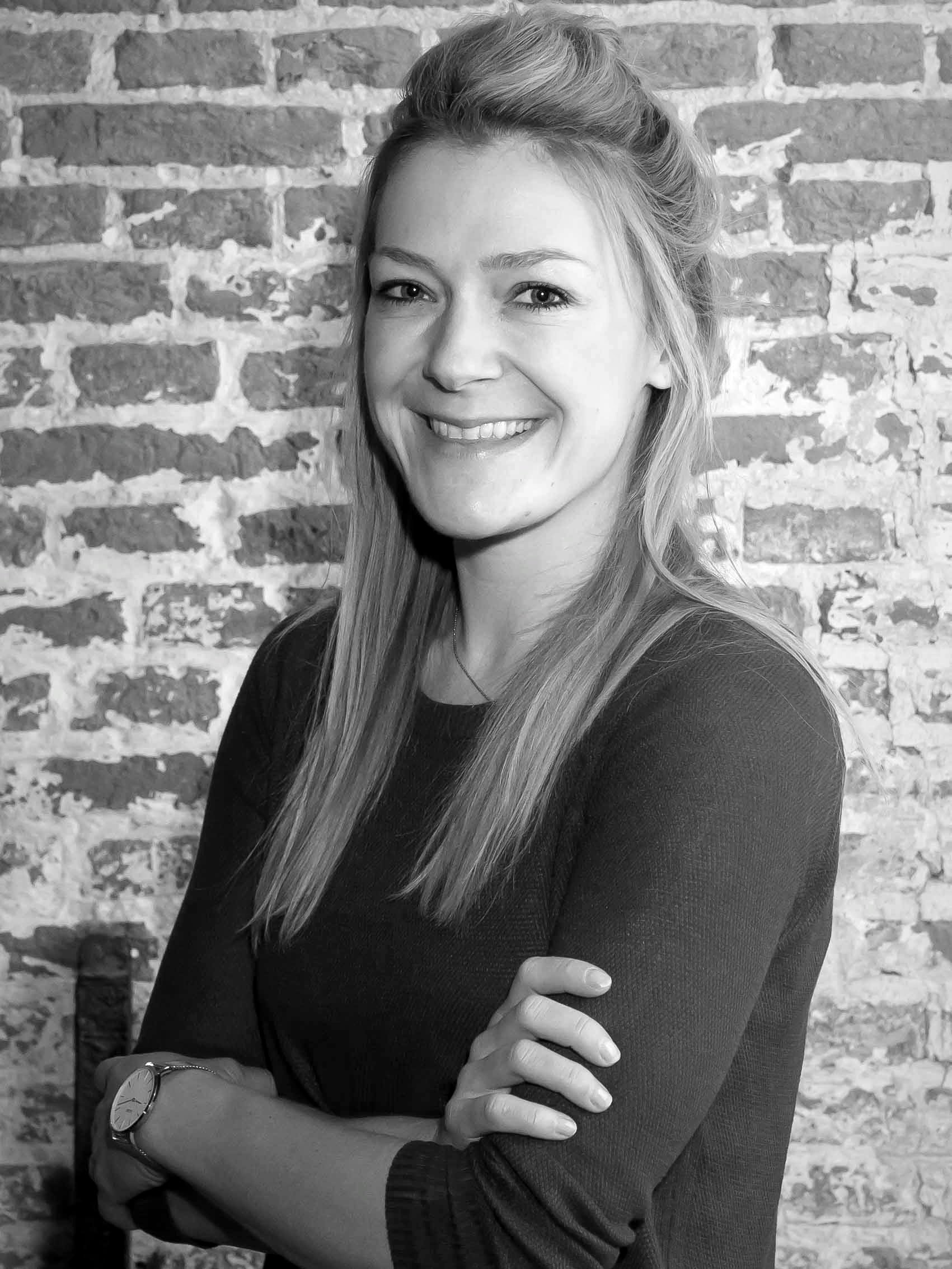
“Impact Matters” was the message we helped deliver during Impact Hub and Ashoka’s event last week in Vienna, aimed at informing social entrepreneurs about social impact and social impact measurement, and why no social entrepreneur should go without.
During the event we had the honour of sharing the stage with Andreas Heinecke, founder of global social enterprise Dialogue in the Dark (DID). The concept of DID is simple: visitors are lead by blind guides through specially designed darkened rooms. A reversal of roles is created: people who can usually see are confronted with the sudden withdrawal of their key-sense sight, while blind people are the experts and provide the public with security and a sense of orientation. Since its start over 25 years ago, DID has successfully been launched in 39 countries throughout Europe, the Americas, Africa and Asia, facilitating millions of visitors and thousands of blind individuals. The ultimate example of an innovative idea turned into social enterprise, turned into thriving global social business.
Andreas’ account about personal meetings with blind people whose lives were drastically changed by DID was immensely popular by the crowd. So popular even, that this led people in the crowd to question why you would need impact data and numbers at all, if you already had a few great stories. Lets face it, looking at a bunch of numbers and data just doesn’t have the same appeal as a well told personal account. Andreas however firmly stressed a very important point:
When it comes to measuring impact for social enterprises, it is not a choice between either telling a great story or using impact data, it is always as well as. The reasons for this are twofold:
Backing up the story
While you need the story to get the message out there, the data is crucial for backing up this story. Even if you have several stories of people that your business created significant change for, they do not tell you the full story of your impact: has your business created positive change for all stakeholders or has it perhaps also created some negative, unintended changes for others? Can all the positive change that has been created be attributed to your business, or did other people or organisations contributed to this as well?
Scaling the right things
Besides the aspect of creating support for your business by spreading your data-backed up-story, measuring impact holds another benefit over storytelling: measuring your impact can help you scale your business the right way, which holds the potential of turning it into a global thriving business such as DID. Only by truly understanding which elements of your business create the most value, for whom and why, can you drive those improvements that can turn your social enterprise into a scalable, sustainable business. This is impossible without managing social impact data in a consistent and continuous way.
Allow me to illustrate this with an example: a program by a social enterprise aimed at helping people overcome substance abuse originally had a success rate of 80% - 80% of the participants were no longer addicted to alcohol after the program. While 80% sounds pretty good, measuring the program’s impact resulted in the insight that the 20% that “failed” suffered heavy depressions as a result, meaning the program created extensive negative impact for this group. Further research provided that the 20% who failed, all lacked a supporting family to fall back on, whereas the 80% that succeeded did have family support. This knowledge helped the social enterprise set up a new program specifically designed for people without family support, thereby greatly increasing the overall impact of both programs – which where both scaled soon after in its new forms. Without these insights, it is likely that the program would have been scaled in its original form based on the assumption that 80% success rate is good enough.
Consistent impact management
At Sinzer we believe in the power of social impact software to help organisations embed impact measurement in their everyday operations. This helps organisations move beyond a one-off social impact report towards a structure of continuous, consistent measurement, resulting in up to date management information which helps them make better decisions, improve and maximize their social impact and scale their businesses.
Want to read how we helped Social Enterprise Van Hulley map their impact? Download the case study
-1.jpg?width=232&name=GT%20Sinzer_logo_screen_descriptor%20(1)-1.jpg)


